Television programmes have seen a huge boom in the last two decades or so, mostly because unlike their movie counterparts, they don't have to cram exposition, plot development and conclusions into a mere 2 hour slot. They have time to breathe, to flesh out their characters with intricacies and nuances, letting plot threads evolve, and character arcs develop over a series of...well...series.
Television shows have a way of gluing us to our TV screens week after week, introducing viewers to characters who we come to love, adore and perhaps even relate to on some level, before we're sent weeping into our pillows when they're killed off. It's a real emotional gamble to dedicate yourself to a TV show, and the emotional gut-punch that follows the death of a loveable character can be more surprising than you think. But as is often the case, sometimes the juice is worth the squeeze.
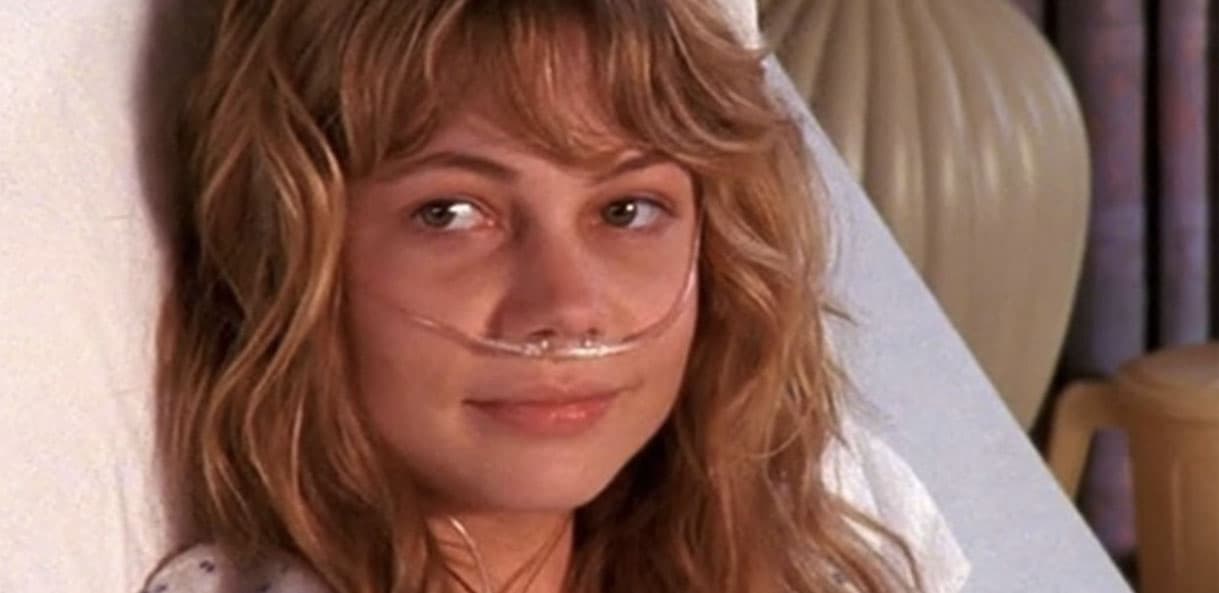
There's something to be said for the way a television show decides to finish. Some leave you with hope in your heart, some with a confusing frown, and some just want to tear your little heart right out, as was the case with Dawson's Creek. Jen Lindley was one of the four main characters of the show; a rough-and-tumble city girl from the wrong side of the tracks, whose jagged edges eventually soften the more time she spends in the fictional town of Capeside.
Despite suffering numerous setbacks throughout the series on her long journey into adulthood, season 6 sees her moving to New York, helping her mum come to terms with her beloved Gram's cancer, and attending NYU to start a new chapter in her life. Happy days? Hell no! This isn't the top 10 happiest endings list! You see the real finale came in 2008 in a 2 part special set 5 years on. Titular Dawson has become executive producer and chief writer of a self-referential television programme, Pacey is the owner of a successful restaurant in Capeside, Joey is a junior editor working out of New York... and Jen is a single mother dying from a fatal heart condition.
We see Jen, at the conclusion of the episode, recording a video message for her daughter before she inevitably succumbs to her ailment right next to her dying Gram, overshadowing any and all positivity that came before and after it. Twist the knife, you utter, utter bastards.
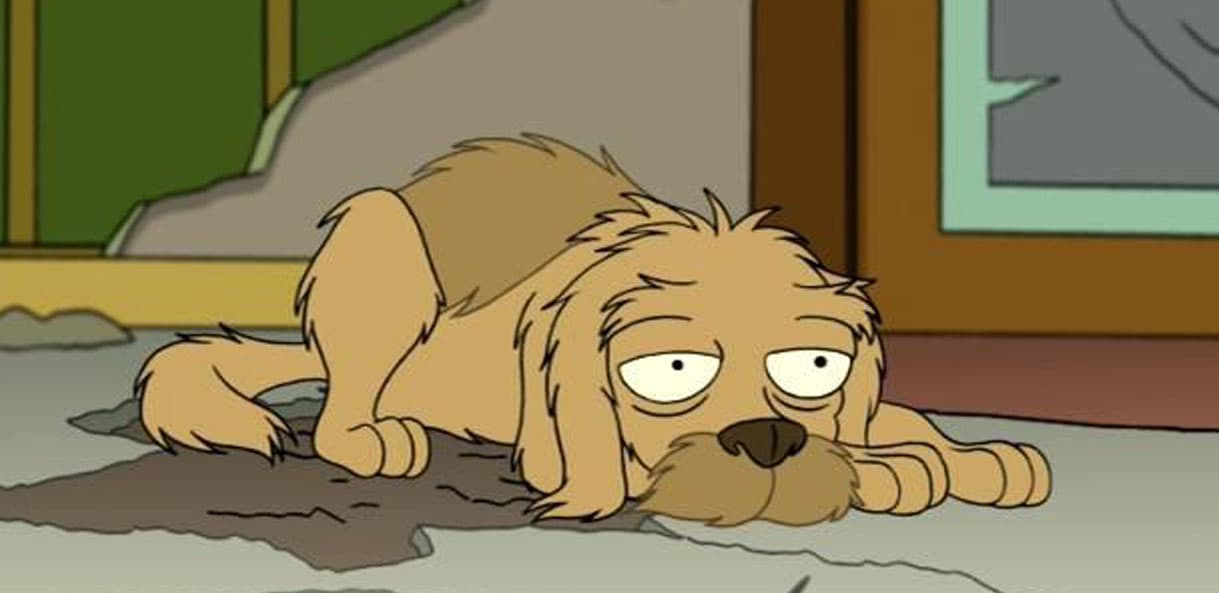
A human dying is one thing, but when an animal kicks the bucket you've gone too far. Something about their innocence just makes the whole thing... wrong. But that's ok; this one's just a cartoon, no emotional ties there, right? Wrong - Just because an animal is created at 12 frames per second, doesn't make it any less heartbreaking when it comes to their demise. Just ask Mufasa, oh you can't, he's dead, and a cartoon.
Despite it being heavy on the comedy, Futurama had its fair share of deep messages and dark moments, like in the fourth season's episode, Jurassic Bark, in which Fry tries to clone his pet dog, Seymour, after finding his fossilised body, but after coming to the realisation that Seymour would have moved on with his life and forgotten him over time, he changes his mind and ultimately chooses not to clone him.
The real kicker comes when we're treated to a flashback which shows Seymour sitting outside the pizzeria that Fry left him in front of in the past. He sits there, waiting obediently for his master to return, only to have several years go by until Seymour eventually passes away. You monsters.
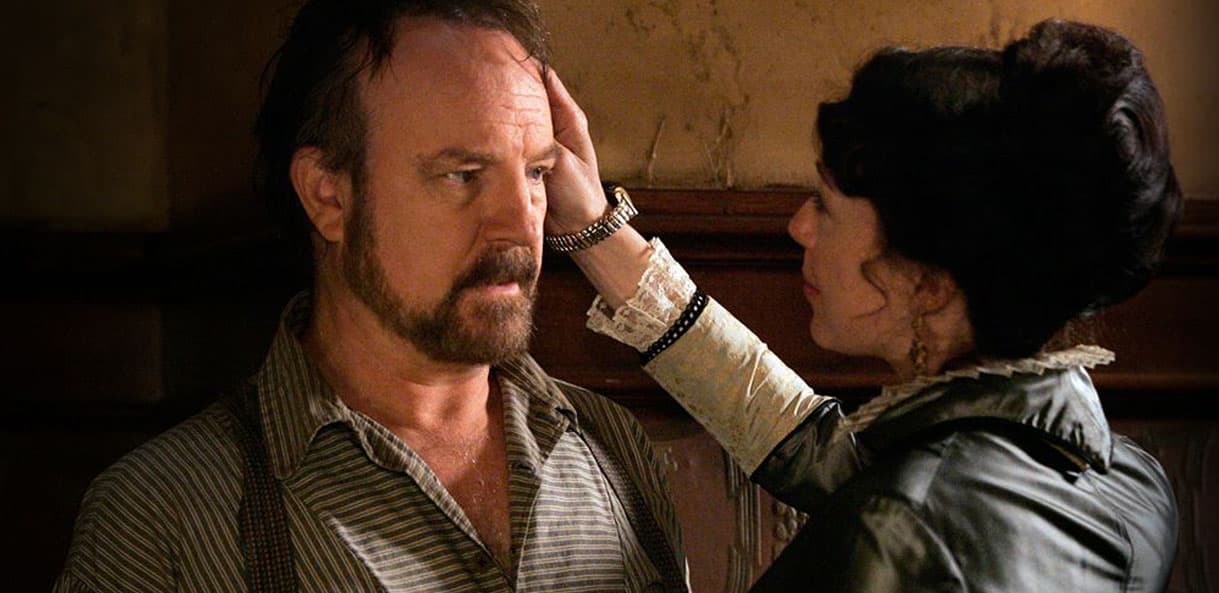
If there's one thing I learnt from Deadwood it's that the American Old West was a horrific place filled with death and malice and is nowhere near as humorous as Back to the Future III makes it out to be, Robert Zemeckis, you filthy liar. Filled to the brim with some of the era's most repugnant scum, the town of Deadwood with set as the backdrop to several deaths throughout its 3 season run, but in most cases it seemed almost justifiable, what with each character being more soulless than the next, all except Whitney Ellsworth that is.
The kind hearted prospector often preferred to keep himself out of the affairs of his neighbours but helped his closest friends whenever he could, a trait that eventually becomes his undoing. As time passes on, Ellsworth comes to care for the widow Alma Garrett and the orphan Sofia, often defending them from those seeking Alma's gold claim, putting him quite literally in the crosshairs of the ruthless mogul, George Hurst.
After a hired gun finally puts a bullet in the head of dear old Ellsworth it's enough to affect even the coldest hearts of Deadwood. Unfortunately the series ended abruptly so Ellsworth's death won't get around to being avenged any time soon.

I sleep much better at night believing that despite there being some pretty bad people out there in the world, there are things even the bad people fear, a concept realised in Omar Little; a modern day Robin Hood and bogeyman to the criminal element of Baltimore, whose sense of justice comes with a 12 gauge shotgun and the whistling sounds of "The Farmer in the Dell".
While at first he may seem like a mere opportunist, as time goes on we learn there's more to Omar than meets the eye, as we're shown that beyond the veil of this loveable rogue's tough exterior lies a man with a strong code of ethics, which considering the people he deals with on a daily basis, is quite remarkable. What makes Omar's death such a punch to the gut is the way it happens. After spending the best part of 5 seasons on The Wire living up to his menacing reputation and keeping some of the biggest and meanest on the back foot, you almost expect some kind've showdown, after all, that is surely the only thing to put a stop to this myth of a man.
Alas, in a moment of weakness, the survivalist lets his guard down and is subsequently shot, not by some drug kingpin or hired gun like one might expect, but by a kid. And just like that, the legend comes to an abrupt end, with no fanfare, just a cold, harsh sense of realism.

Alice Morgan was the loveable mainstay of all but one of the five seasons of Luther, and while she was likely to cut your throat as you slept, her trademark, seductive smile would still make you love her in your final moments. Evolving quickly from what we're led to believe is a helpless female victim, Alice didn't just turn the trope of the helpless female victim on its head, she took the trope, snapped its head off and tossed it into the neighbours garden.
Alice was revealed to be a cold and intelligent Machiavellian who develops a dark interest in John Luther after he deduces who she truly is. Their developing relationship is a pivotal point of the series, as she represents a world of liberation and something resembling happiness in contrast to his surrounding world of rules, injustices and loneliness. Similarly, Luther brought a sense of stability, warmth and caring to Alice's life, and in return she helped John a number of times, especially when he needed her most. The fifth season led to a final confrontation between the two, with Alice finally biting the big one and Luther being placed under arrest.
What makes this one particularly sting is that you can see that there is a love between the two characters, but it's just so toxic that perhaps it was doomed from the start. Time will tell how life will pan out for Luther now that our favourite red-headed sociopath has gone the way of all flesh, but hopefully we don't have to wait another 4 years before the next season (or film) drops to find out.
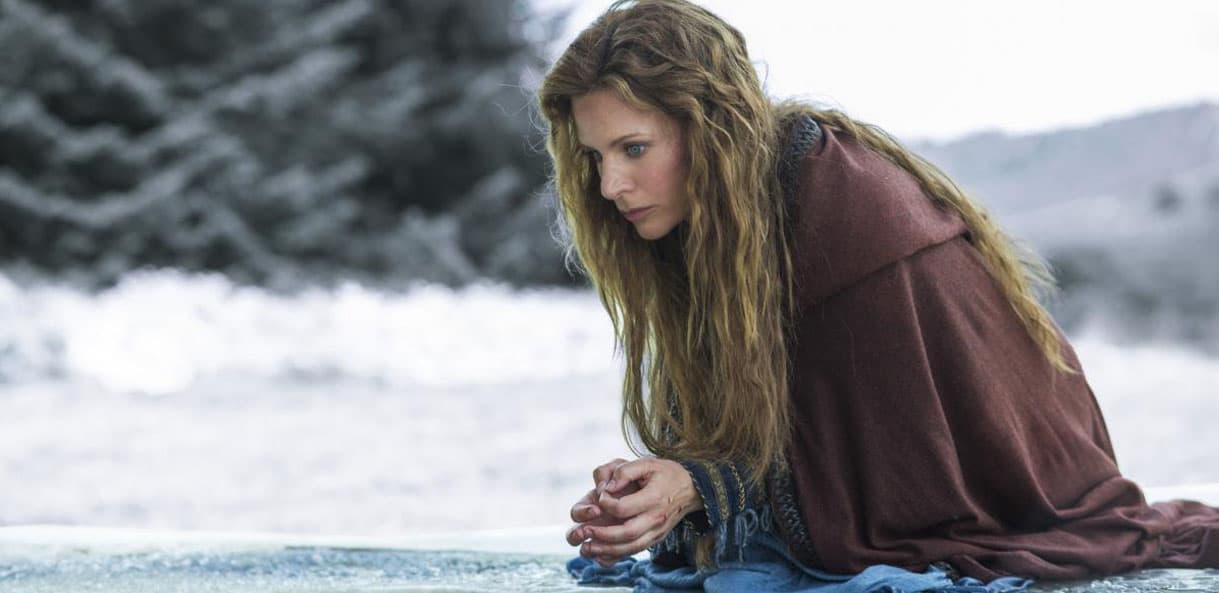
Some people really do get the short end of the stick. Take Siggy Haraldson for instance, the once-powerful wife of an Earl suffered through tragedy before the events of the show even takes place, as we discover her two sons were brutally murdered by an unknown culprit, this is followed up by the death of her husband, Earl Haraldson, at the hands of Ragnarr Lothbrok in single combat, and the death of her daughter from an illness which sweeps across the village of Kattegat.
With her loved ones gone and her status reduced to that of a handmaiden for the family that killed her husband, Siggy becomes a shadow of her former self, but it doesn't end there. Despite finding some solace in the arms of Ragnar's brooding brother, Rollo, Siggy's demise finally comes about with the arrival of Harbard, a wandering stranger with a penchant for being creepy and whose mesmerising effect on women is sadly nothing like my own.
With the ladies of Kattegat distracted, it's left to Siggy to babysit Ragnar's children, who immediately get lost (because they're children), fall through some ice and are saved at the cost of Siggy's life. What makes Siggy's death particularly poignant is the way in which you can slowly see the will to live drain from her eyes as she gives up and accepts her fate.

When we first meet Mike Ehrmantraut he's cleaning up after the death of Jesse Pinkman's girlfriend, Jane (a contender for this very list), spying on Walter White's family and serving as both brain and brawns for Saul Goodman and his employer, Gus Fring. Though he initially comes across as cold and reserved in his profession, Mike's depth begins to shine as we learn that he does have something of a sensitive side when it comes to his granddaughter, Kaytee, and that he's a great judge of character as seen with his initial concerns regarding Jesse's erratic behaviour and being one of the first to realise how selfish and destructive Walt really is.
After everything he goes through; dealing with the fallout of Gus's death, butting heads with Walt and trying to keep everything simple and balanced (as much as one can in the madcap world of the drug trade), Mike finally meets his end, sitting and staring out towards the distance as he slowly bleeds out, you can totally understand his sentiment when he tells Walt to shut the fuck up and let him die in peace.
Unfortunately, the trials and tribulations of Mike Ehermantraut stretch even further back, as revealed in the current series of Better Call Saul, which serves as a prequel to Breaking Bad, and shows how much trouble Mike goes through just to get by and provide for his loved ones, all the while we know just how badly it's going to end for ol' Mike.

There've been a lot of medical dramas on TV, no seriously, a lot, and it's practically a given that with a medical drama you're going to see your fair share of death, there's just no hiding from it, but when death is a day-in and day-out concept, the execution, as it were, has to have enough gravitas to impact the viewers. When it came to Amber Volakis, this was taken to a whole new level.
Starting as one of several applicants to become a fellow under Dr. Gregory House in season 4, Amber quickly rose through the ranks as an ambitious and self-serving manipulator, earning herself the ire of her fellow doctors, as well as the admiration of House himself. Despite her efforts, Amber doesn't make the cut due, but resurfaces as Dr.Wilson's girlfriend later in the series, a source of happiness for him, but a source of contention for House.
Amber's death comes at the end of the season where she's involved in a bus crash, hospitalised, and suffers multiple organ failure. Wilson makes the tough decision to revive her from her coma only to reveal her imminent fate as they embrace one final time before shutting off her life support system, bringing tears to the eyes of fans that both loved and hated her. Not bad for a girl dubbed "Cutthroat Bitch".
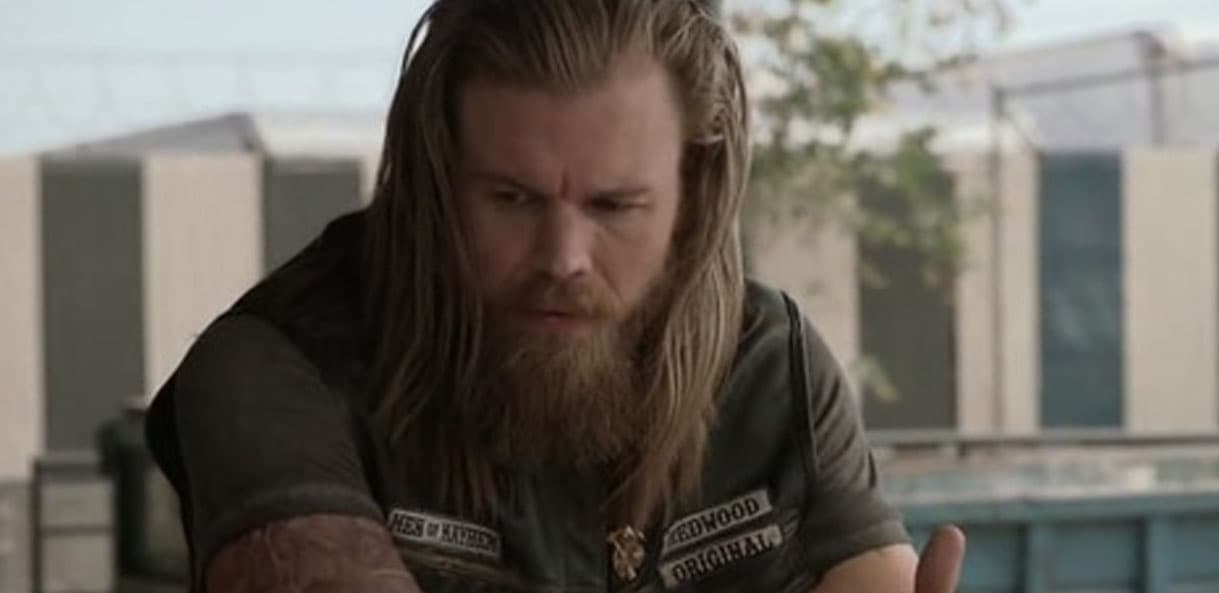
Opie Winston is the best friend we all wish we had: that guy who's willing to take a bunch of fatal lead pipe hits for his buddies. In a show revolving around bad-ass bikers and their bad-ass activities, you can expect little to nothing when it comes to a sense of innocence, but while Sons of Anarchy may consist of more hell than angel, you still can't help but see flashes of morals beyond the mayhem.
Opie serves as the conscience of the Sons of Anarchy; a reluctant soldier who's trying to go straight after serving a 5 year prison sentence but just can't quite seem to escape the undertow of his past life, and while, yes, he performs some pretty despicable acts during his run on the show (he's in a biker gang), we can't help but admire his sense of honour to those around him, particularly his best friend, Jax Teller, showing dedication to a club that eventually causes the disintegration of his family life.
His wife's murder followed by the eventual death of his father, Piney, at the hands of fellow club members shows just how misplaced his blinding loyalty really was, but nonetheless continues to support his best friend, eventually giving his life for the ones who had taken it away for so long in a particularly brutal scene. Legend.
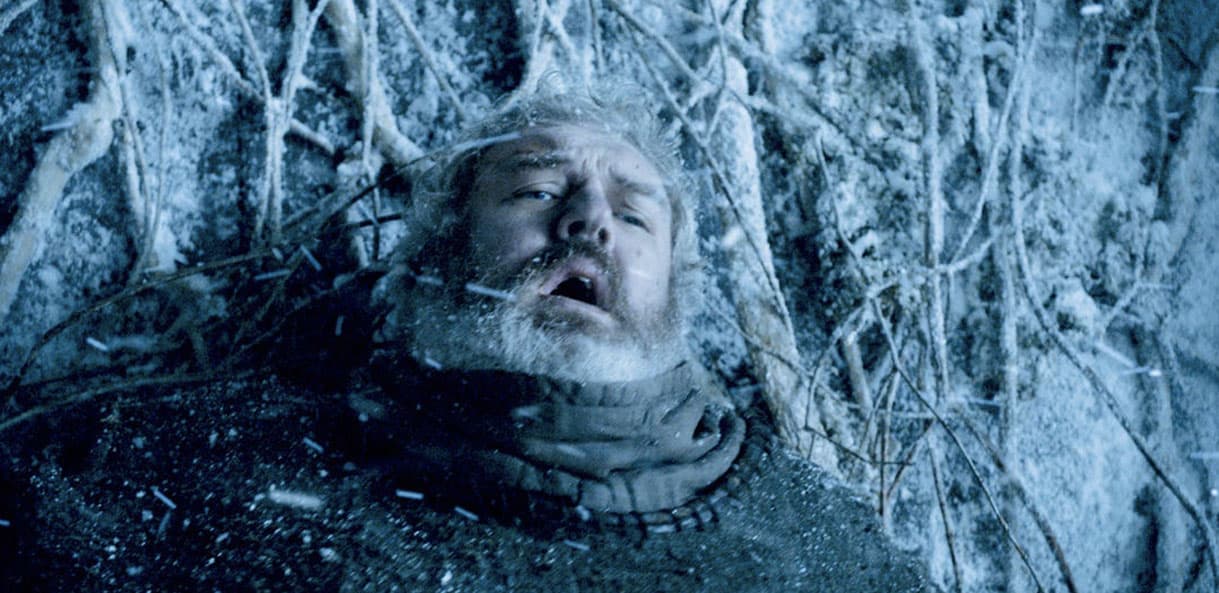
To be fair, this entire list could've consisted purely of characters that have departed the world of Game of Thrones, and despite being completely torn over pretty much every on-screen death, Hodor snatches the victory for this one. Beneath all the plotlines and character arcs, Game of Thrones is a story about the evils that men (and women) do, and in this world, evil is as easy to come by as a controversial sex scene, but despite the backstabbing machinations and blood-drenched carnage, there are a few seemingly good eggs running around Westeros.
What makes Hodor stand out is his complete and utter innocence, even virtuous characters like Jon Snow and Robb Stark aren't completely innocent, not in the purest sense of the word anyway. Hodor was the gentle giant we didn't want to believe would be chewed up and spat out by the cruel world he found himself in, but what were we thinking? This is, after all, Game of Thrones.
To make matters worse, we finally learn that most of Hodor's existence was a tragic error of circumstance, the realisation of which made it all the more difficult to accept when he made his final sacrifice for the one who inadvertently caused it all. Talk about a metaphorical kick in the emotional balls. It's a strong impact when the death of a character turns an everyday phrase like "hold the door!"" into something that can reduce grown men to tears.